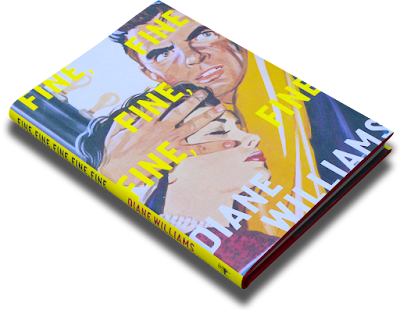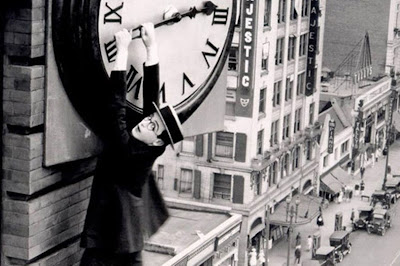It is unfortunate that, whenever I have talked here about transgender rights, it is usually because something bad has happened: the Roman Catholic church publishes its own guidance [link], rancour during a consultation over the UK’s Gender Recognition Act [link], how being trans isn’t postmodern because of Mr Potato Head [link], or how trans rights are being used as a weapon in the culture wars [link]. Even when I have talked about being trans myself, it was in relation to how the headache of applying for a Gender Recognition Certificate in the UK was preferable to waiting for the process to become easier [link].
My occasional return to this subject, one where the question of whether trans people should be able to self-identify in their correct gender, without needing the legal process I went through, has been treated like a dog whistle for so long that everyone can hear it, is like sticking a pin in a particular moment in time and saying, “wow, people are just the worst, aren’t they?” The whistle has been blown multiple times in the last week that I thought I should just keep a record of what happened here, so when I return to this some time later, I hope I can say that things became better from here, because they could not get any worse.
On Sunday 20th March, the “Sunday Times” columnist Camilla Long wrote, on page 25 of the main paper, that the victory of trans female swimmer Lia Thomas, in an American college swimming championship race – or, in her terms, a “hulking man-bodied swimmer” – would make you ask “where on earth are we as a culture... Yes, yes, I know she was within the rules, but if these are the rules, they obviously suck. Instead of protecting trans people, they open them up to ridicule and accusations of cheating.”
Reading the last paragraph in a British newspaper made me feel sick: “It ends up feeling as if the very act of being trans is designed to mock and goad women: a brazen act of public humiliation. Is that really what Thomas was aiming for?” Whether Long actually believes that or not, knowing that someone could make that sort of deduction is clearly not the fault of Lia Thomas, or Caster Semenya for that matter. I only know about both people in how others have spoken about them, or projected their thoughts onto them. Women’s sport is only the latest battleground in the culture wars.
Meanwhile, on Saturday 19th March, the Foreign Secretary, Liz Truss MP, made a speech a the Conservative Party’s Spring Conference in Blackpool, against the background of Vladimir Putin’s invasion of Ukraine: “We should be proud of our country, and our long standing commitment to freedom and democracy. Now is the time to end the culture of self-doubt. The constant self-questioning and introspection. The ludicrous debates about language, statues and pronouns. Our history – warts and all – makes us what we are today.”
I recall one of the first things to go when the Soviet Union collapsed was the statues. Bringing up certain debates, however “warty” they are, in order to say they are “ludicrous” only energises them.
On Thursday 24th March, former comedy writer Graham Linehan claimed that he has been “cancelled” both from public life, and from his marriage, by trans rights activists and former friends, by appearing on Stephen Nolan’s TV talk show on BBC One Northern Ireland, a story picked up and relayed by many newspapers and websites. Linehan, who was so against trans people being able to self-identify themselves in law that he was permanently suspended from Twitter for being enough of a nuisance to diminish the experience of using the service for people, said, “The one thing about this that keeps me going is that I know I'm right. Sometimes something is so wrong that you have to say something and if I didn't say something I'd go mad.”
Then there is J.K. Rowling, for no discussion of trans rights can happen without the most powerful person in the room being present, until someone more powerful than them compares themselves to you: on Friday 25thMarch, Vladimir Putin compared the cultural “cancellation” of Russia, due to the actions of their “special military operation” in Ukraine, to how Rowling has been “cancelled” for her views on trans self-identification. Apparently Rowling does believe trans people should be protected, but it is not often mentioned in media reporting, or by herself in particular, as nuance is often lost in arguments.
Putin’s statement felt like the ceiling in the trans rights debate might have been reached. I didn’t plan on writing about the ongoing conflict in Ukraine until after it had ended, as the moral outrage that led to the withdrawal of Western business and consumer products and brands from Russia, without intervention from Western governments, is something that will eventually be worth discussing – it is a kind of cancel culture that everyone has seemingly supported. However, “critiques of Western cancel culture are possibly not best made by those currently slaughtering civilians for the crime of resistance, or who jail and poison their critics,” as Rowling said, on Twitter, in response to Putin.
Finally, on Wednesday 23rd March, in response to a question on young people experiencing gender distress, Prime Minister Boris Johnson said the following: “This is one of those issues that the whole House is coming to realise requires extreme sensitivity, tact, love and care. We must recognise that when people want to make a transition in their lives, they should be treated with the maximum possible generosity and respect. We have systems in this country that allow that and have done for a long time, and we should be very proud of that, but I want to say in addition that I think, when it comes to distinguishing between a man and a woman, the basic facts of biology remain overwhelmingly important.” As much as the first part of that statement was needed, the last part was what made the headlines.
One day, I will run a thread between all the pins I have placed over time, and see what picture it makes.




